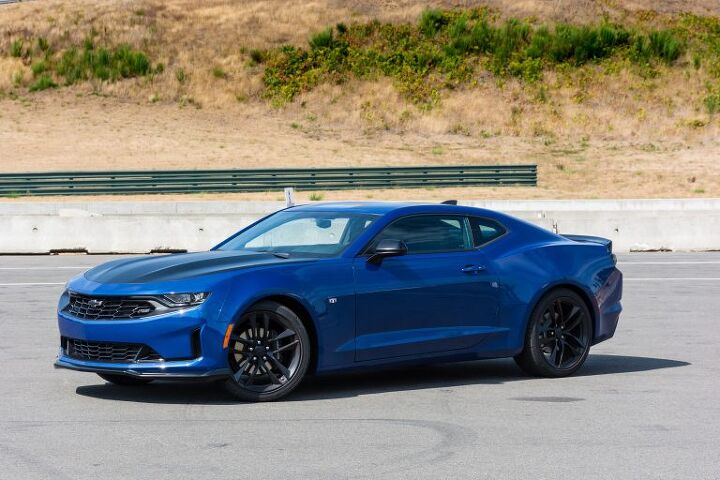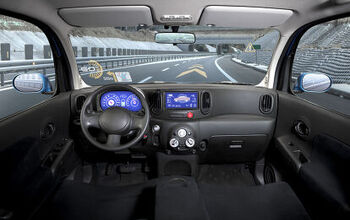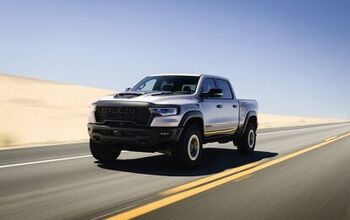QOTD: Minding Your Mileage?

Without getting deep into the emotional weeds of a contentious scientific debate, one which many would argue we’re not even allowed to have, let’s instead speak in broader terms. Emissions are bad. Always were. They’ll get you in trouble with the EPA and force you to promise fleets of electric cars while funding ads featuring your competitors. They blanket China in orange gloom to this day and once nearly suffocated an entire Pennsylvania town.
The true harmfulness of these emissions, of course, depends on your own personal views — even more so these days. In the past two decades, possibly because of progress on the pollution front, the climate-altering ingredients of emissions (methane, carbon dioxide) quickly superseded the direct health impacts of airborne pollutants like nitrogen oxide, hydrogen fluoride, and sulfur dioxide in the minds of many North American citizens and policymakers. Smog? You can see that. Was that tornado or flood a natural occurrence or did it have “help”? That’s less tangible, more opaque. Easy to ignore.
Still, the effect of this switch in green priorities on discourse surrounding the automobile (and ownership thereof) remains the same. We’re often asked to choose sides.
1970s smog controls didn’t stop your Bonneville’s boat-anchor V8 from emitting pollutants born of fossil fuel combustion — it just reduced them. Nor has turbocharging, direct injection, and lightweighting turned automotive tailpipes into cornucopias spewing oxygen and vibrant ferns. Engines just burn less gas than before, though the advent of SUVs has kept average fleetwide fuel economy stagnant for the past several years.
Lately, I’ve noticed an undercurrent of dissent, in some cases outright rebellion, in the online automotive community directed at, oddly, the automobile. Auto journos aren’t immune to the same environmental activism that afflicts (for lack of a better word) a person from any walk of life or profession. Recent, increasingly dire pronouncements from large, intergovernmental climate bodies have only heightened the trend.
Again, your personal stance on this issue likely falls somewhere between “Get bent, commie,” and “I’m distributing cyanide capsules to my family members to save them from tomorrow’s apocalypse.” That pretty much spans the gamut, I think.
Unfortunately, the debate often ends up with people promoting visions of how they feel other people should live their lives, regardless of geography or circumstance. There’s a big difference, as far as transportation needs and options are concerned, between someone living in downtown New York or Chicago or Toronto and your random Flyover Country resident with two vehicles sitting in the driveway, each good for 15,000 miles of odometer exercise per year. Here, taking a bike or Uber or e-scooter or subway or VrtuCar or Car2Go isn’t a realistic or even possible alternative to owning and driving a car. A one-size-fits-all strategy espoused by a carless, single urbanite is bound to wrankle those on the other side of the lifestyle fence.
Yet choice remains in the type of vehicle you drive.
There’s drawbacks and benefits to owning a small gas sipper, just as there are with limited-range electric cars — saving money at the end of the week, or perhaps saving the planet by the end of your life, at the expense of go anywhere, do anything.
As our light bulbs move from incandescent to LED, and as our newer fridges and stoves consume less juice pumped out by the coal- or gas-gulping powerplant in the neighboring county, our cars remain the most conspicuous form of consumption. It’s understandable why they’re singled out.
Interestingly, in 2016 the U.S. transportation and electricity sectors were equal in the amount of greenhouse gases emitted into the atmosphere (28 percent of total emissions, the combined amount of which is on a slow decline). Industry came in third with 22 percent, with residential fourth at 11 percent. Ironically, placing more EVs in driveways to reduce automobile emissions would likely increase overall electricity sector emissions. You’re not getting off scott-free just because you’ve purchased a Leaf or Model 3.
The only solution to this upstream annoyance? Drive less. Buy a vehicle with a downsized motor or electric assist (but not plug-in assist), unless, of course, your household power comes by way of a hydroelectric dam or nuclear plant. If paying at the pump hurts the wallet, as it does mine, you’re still doing your part by choosing a fuel miser, even if your dreams involve a Ram Power Wagon or 1958 Facel Vega.
So, let’s put this to you, the reader. Was the environment a factor in the decision to purchase the vehicle you’re driving right now, or in the amount of miles you drive? Does it impact the vehicle you plan to buy next? Or, is the automotive area of your life simply off limits, regardless of your stance on the environment?
(Please be respectful to others in the comments, all of you. None of you hold the rights to the *only* opinion.)
[Images: © 2018 Chris Tonn/TTAC, EPA.gov]

More by Steph Willems
Latest Car Reviews
Read moreLatest Product Reviews
Read moreRecent Comments
- Probert They already have hybrids, but these won't ever be them as they are built on the modular E-GMP skateboard.
- Justin You guys still looking for that sportbak? I just saw one on the Facebook marketplace in Arizona
- 28-Cars-Later I cannot remember what happens now, but there are whiteblocks in this period which develop a "tick" like sound which indicates they are toast (maybe head gasket?). Ten or so years ago I looked at an '03 or '04 S60 (I forget why) and I brought my Volvo indy along to tell me if it was worth my time - it ticked and that's when I learned this. This XC90 is probably worth about $300 as it sits, not kidding, and it will cost you conservatively $2500 for an engine swap (all the ones I see on car-part.com have north of 130K miles starting at $1,100 and that's not including freight to a shop, shop labor, other internals to do such as timing belt while engine out etc).
- 28-Cars-Later Ford reported it lost $132,000 for each of its 10,000 electric vehicles sold in the first quarter of 2024, according to CNN. The sales were down 20 percent from the first quarter of 2023 and would “drag down earnings for the company overall.”The losses include “hundreds of millions being spent on research and development of the next generation of EVs for Ford. Those investments are years away from paying off.” [if they ever are recouped] Ford is the only major carmaker breaking out EV numbers by themselves. But other marques likely suffer similar losses. https://www.zerohedge.com/political/fords-120000-loss-vehicle-shows-california-ev-goals-are-impossible Given these facts, how did Tesla ever produce anything in volume let alone profit?
- AZFelix Let's forego all of this dilly-dallying with autonomous cars and cut right to the chase and the only real solution.



































Comments
Join the conversation
I'm not a climate denier, I can read a graph, but I'm also not an idiot. All of the solutions that we're being presented with boil down to more taxes to pay for more crony capitalism while addressing the purported problem so trivially as to be discounted entirely. The Paris CO2 treaty amounts to pushing the year 2100 catastrophe all the way out to early 2101. The machine feeding us this propaganda 24/7 is the would-be recipient of these taxes. So no, I don't buy a single word of it. The people that say that they do are either paid shills or unpaid idiots.
Given my previous fleets of V8 cars - and my short spell with turbocharged 4-cyls (that consume waay more gas than I expected - no. Heck I'm lucky to break 16mpg (city) in my Mustang, and it only has a 3.7L V6. It's just that all the fun power is up in the higher RPMs, so I'm spinning that engine a lot!